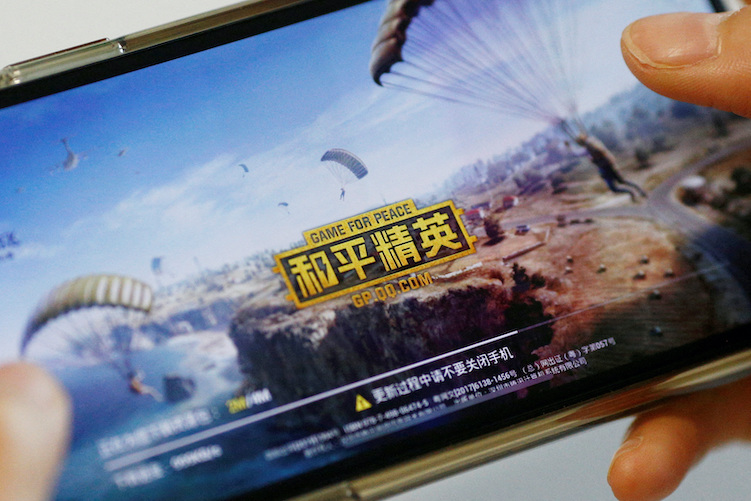Chinese gaming stocks rose on Wednesday (Jan 3) after a state media commentary calling for Chinese officials to end their erratic regulatory moves on the platform sector – and the dumping of a top regulator.
A front-page opinion piece by a Communist Party newspaper, the Study Times, called for regulators to stop “swinging between extremes of lax oversight and ‘overly strict’ regulation so that China’s Big Tech firms can have room to grow”, according to a report by the South China Morning Post.
The article did not name any company or regulator, it said, but these moves came after billions were wiped off the value of gaming stocks two weeks ago by news that regulations were proposed to restrict spending on video games.
The Post reported on Tuesday that a key gaming official left his job after the proposal was revealed, as the Chinese government now wants “to allay market fears”.
ALSO SEE: China’s Top Banks Reducing Exposure to Small Regional Lenders
Mr Feng Shixin was removed from the government body overseeing its press and publications regulator, according to a Reuters report, which cited five sources.
These events led to China’s CSI Anime Comic Game Index gaining as much as 3.1% in early trading against a 0.3% drop seen in the broader market.
The removal of the official was a goodwill gesture to the public and demonstrated China’s “stance of maintaining confidence”, Mr Rukim Kuang, founder of Beijing-based Lens Consulting, said.
“It is expected that the proposed gaming draft rule will not be implemented in the short term,” he added.
Mr Feng was removed last week from his position as head of the publishing unit of the Communist Party of China’s Publicity Department, the sources said.
The department oversees the National Press and Publication Administration (NPPA), which, in turn, regulates China’s vast video game sector.
The sources said Mr Feng’s removal was linked to rules that the NPPA announced in December that sent stocks in the world’s largest video game sector, including those of industry giant Tencent, plunging.
China’s State Council Information Office, which handles media queries on behalf of the Chinese government, including on personnel matters, did not immediately respond to a request for comment.
Proposed rule changes hit firms – and investor confidence
The NPPA’s proposed measures, which seek to curb spending and the use of rewards that encourage the playing of video games, triggered fears that the Chinese authorities were once again cracking down heavily on the sector and wiped nearly $80 billion off the market value of Tencent and NetEase, China’s two biggest gaming companies.
But today, shares in Tencent added 1.35% and NetEase climbed 0.96% (before falling later in day), while the Hang Seng benchmark slipped 0.85%.
Analysts said the plans brought the risks of potential regulatory changes back to the fore in the minds of investors, hurting confidence at a time when Beijing has been trying to boost private-sector investment to spur a slowing economy.
Five days after the rules were announced, the NPPA struck a more conciliatory tone, saying it would improve them by “earnestly studying” public views.
Beijing cracked down heavily on its video gaming sector in 2021. It set strict playtime limits for those under 18, in addition to suspending approvals of new video games for about eight months, citing concerns over gaming addiction.
The crackdown was part of a wider regulatory crackdown on several sectors, including technology and property, and led to 2022 being the Chinese gaming industry’s most difficult year on record as total revenue shrank for the first time.
China’s video game market returned to growth in 2023 as domestic revenue rose 14% to 303 billion yuan, according to the China Game Industry Group Committee, an industry association.
- Jim Pollard with Reuters
ALSO SEE:
Tencent Pouring Resources Into Big Budget Console Games
China Proposes Eight-Minute Limit on Smartphone Use by Kids
Beijing’s Crackdown Wiped $1.1 Trillion Off Chinese Big Tech
Tencent Seen Aiming at Majority Stakes in Foreign Gaming Firms
Approvals Signal an End to China’s Gaming Crackdown
China Videogame Sector Reports First-Ever Drop in Revenue
China Slashes Online Gaming to Three Hours a Week for Young People
Tencent Curbs Video Games After State Media Calls Them ‘Spiritual Opium’
























